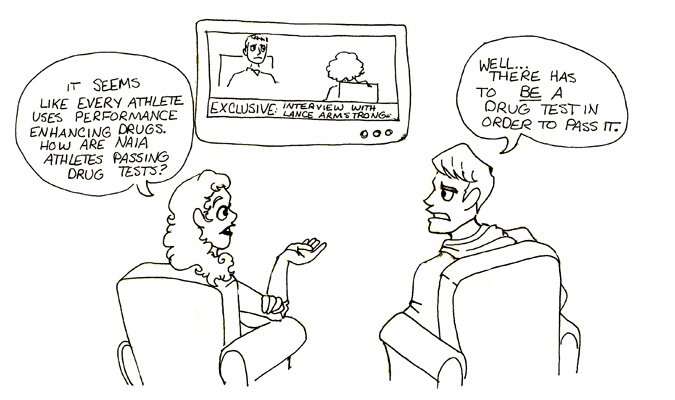Proposal would change interterm schedule
For decades, interterm has provided Baker students with a distinctive liberal arts experience. According to the university’s website, the three-week course is a time designated for students to “spread (their) wings and discover more about the world.” While these classes will continue, a different experience has been proposed for 2015-2016.
Interterm is traditionally offered between the fall and spring semesters. However, while looking at calendar options for the 2015-16 academic year, members of the Educational Programs and Curriculum Committee recently considered a proposal to move the three-week courses to May rather than January.
One proposal is the “historically traditional” calendar, with interterm beginning on Jan. 4. The spring semester would run from Jan. 27 through May 10.
A second proposed calendar creates an interterm schedule dubbed “May-mester.” The spring semester would start in the first week of January and then end on April 22, and May-mester would follow on May 4.
As the academic calendar currently stands, students who are taking an interterm return to campus in early January and do not start the second semester until the end of the month. This also allows those students who have either already fulfilled the required two interterms or are opting out of the experience to have more lax time before the start of the spring semester.
By implementing May-mester, all students would return to campus during the first week in January. One benefit of this arrangement is that students who are not enrolled in May-mester will finish their final exams by April 29, freeing up all of May, June and July.
To be fair to those who support this May-mester proposal, it could have a few benefits. It would give students who aren’t participating in May-mester a longer summer to pursue job or internship opportunities. Seniors would have an earlier graduation, allowing them to start their professional lives sooner. It would also give the students who are participating in May-mester a few extra days between semesters to relax and spend time off campus with family and friends.
The disadvantages to this change, however, outweigh the benefits. For example, spring break, which falls on the same week as Easter, will be the only time off during the spring semester. If students, faculty and staff are limited to one break the entire semester, the spring schedule may seem to drag on, causing a loss of motivation.
As great as an early summer sounds, it would be difficult to get everyone on board with the idea of May-mester. January interterm has been in place for a long time, and most students have accepted the fact that they must return to campus three weeks early in exchange for a class that will most likely provide learning experiences that can’t be acquired during the regular semester.
Therefore, the idea of May-mester should be kept stored away while we continue to embrace the university’s current interterm schedule. Interterm and May-mester are distinctive opportunities and Baker students should take advantage of them.
However, we ask, why change a good thing?







